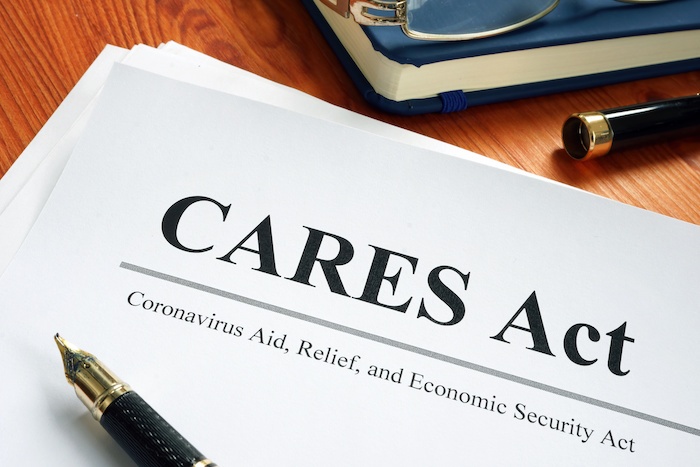
Is CARES Act Mortgage Forbearance Right for You?
Homeowners at risk of losing their homeare looking for hope, but does the CARES Act work for everyone?
The advent of COVID-19 restrictions brought with it more than just the fear of illness. It created chaos in many households, resulting from economic uncertainty, layoffs, and a host of other financial impacts. For renters, eviction moratoriums provided some relief from the anxiety associated with these impacts. For homeowners, the CARES Act, and the mortgage forbearance option it provided, helped to create more peace of mind during the pandemic’s darkest days. Now, as its provisions wind down, what’s next for cash-strapped homeowners?
What is the CARES Act?

The CARES Act was a $2.5 trillion stimulus package signed into law on March 27, 2020, less than two weeks after the beginning of widespread COVID-related shutdowns. It encompassed a wide variety of responses to the economic consequences of the pandemic, including enhanced unemployment benefits, payroll protections, and small business loans, along with direct funding of COVID-related research and vaccine development.
Because the effects of the pandemic lasted for so long, subsequent enhancements to the CARES Act were passed in December 2020 through the Consolidated Appropriations Act and in March 2021 through the American Rescue Plan Act.
Who qualifies for the CARES Act forbearance program?

According to the Consumer Financial Protection Bureau (CFPB), the following homeowners may be eligible for forbearance options under the terms of the CARES Act:
- Homeowners whose financial hardship is directly or indirectly due to the results of the COVID-19 pandemic.
- Homeowners who have a mortgage that is federally backed, such as those from HUD/FHA, Veterans Administration (VA) loans, USDA loans, and those backed by Fannie Mae and Freddie Mac.
While homeowners without federally backed loans are not eligible for forbearance under the terms of the CARES Act, they may be eligible for programs developed within their own bank, credit union, or other lending institution. It is essential to reach out earlier rather than later to find out what options are available in your particular situation.
When does the CARES Act expire?

The provisions against foreclosure have been extended multiple times and are currently set to expire on September 30, 2021, as of the time of this writing. If a loan is backed by HUD/FHA, USDA, or VA, the deadline for requesting an initial forbearance is on that date. Freddie Mac and Fannie Mae have not yet set a deadline for requesting an initial forbearance.
Why don’t more people apply for forbearance?

According to a 2020 Urban Institute Study on the forbearance provisions of the CARES Act, more than half a million homeowners who were delinquent on their mortgage had not taken advantage of the forbearance offered. A subsequent study found that the following reasons may have kept borrowers from participating in the program:
- Many borrowers may not have known that they were eligible for forbearance under the terms of the CARES Act.
- Many borrowers may not have known how to connect with their loan servicer or may have been unable to reach a representative at the loan servicer’s office due to COVID-related closures.
- Some borrowers were afraid that they would be forced to pay a lump sum payment at the end of forbearance or that the process would have a significant impact on their credit score, interest rate, or other factors.
Often, it seems that communication is the biggest barrier to effectively intervening and helping homeowners to take advantage of the protections offered by programs like those in the CARES Act. If you are struggling with your mortgage payments, it is important for you to reach out and connect with your loan servicer to find out what options are available to you right now.
What are my alternatives to the CARES Act?

For homeowners who did not take advantage of the provisions outlined in the CARES Act or who do not wish to enter into forbearance, there may be a number of other options available. Here are some ways to address an overdue mortgage while the foreclosure moratorium is still in place:
- First, reach out to your loan servicer and find out what you need to do to pay off your loan. You need to be working with real numbers so that you can make the important decisions ahead. Remember, your loan servicer may be different from the lender who initiated your loan. Check your most recent mortgage statement for contact information.
- If you own the property with others — either a spouse, family member, or other co-owner — it is important for you to sit down and have a conversation about your goals and interest in the property. If you are going through a divorce or if you have inherited the property, it may be difficult for your to reach an agreement. Time is of the essence, however, so you’ll need to develop a plan sooner rather than later.
- If you have decided to sell your home, you’ll need to decide what type of sales process you want to pursue. You may choose to make needed repairs and updates and put your home on the market for a traditional sale with a real estate agent. If, however, you are struggling financially, a sale process with a real estate investor may offer you a faster and more predictable option. Crunch the numbers and find out which alternative makes the most sense in your unique situation.
If you’re experiencing financial difficulties due to the COVID-19 pandemic — either because of job loss, a death in the family, or overwhelming medical bills — it is important to understand your rights and your options. Start by talking to your lender or financial advisor and, if you decide that a home sale is the best option for you, talk with us as well. At Offercity, we are solution-oriented and focused on providing a service-based approach that works for you and your family.